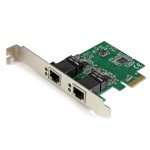GlusterFS Storage Setup on Two CentOS 7 Servers and Client

GlusterFS is a simple and easy to configure scalable network attached storage. GlusterFS is a distributed storage consisting of nodes (servers including storage bricks), which export their own local file system as a volume. Volumes can be mounted on client servers as a network storage using NFS and Gluster Fuse. GlusterFS provides failover, redundancy and anti split-brain mechanisms that act as a High Availability system, that’s why in many aspects it is similar to the well known clustering software like Veritas Cluster Suite.
In this tutorial we will install GlusterFS on two CentOS 7 based nodes. We will use KVM Virtual Machines to make things easier and faster, but our main intention is to show you how to install GlusterFS on physical hardware.
Read More



